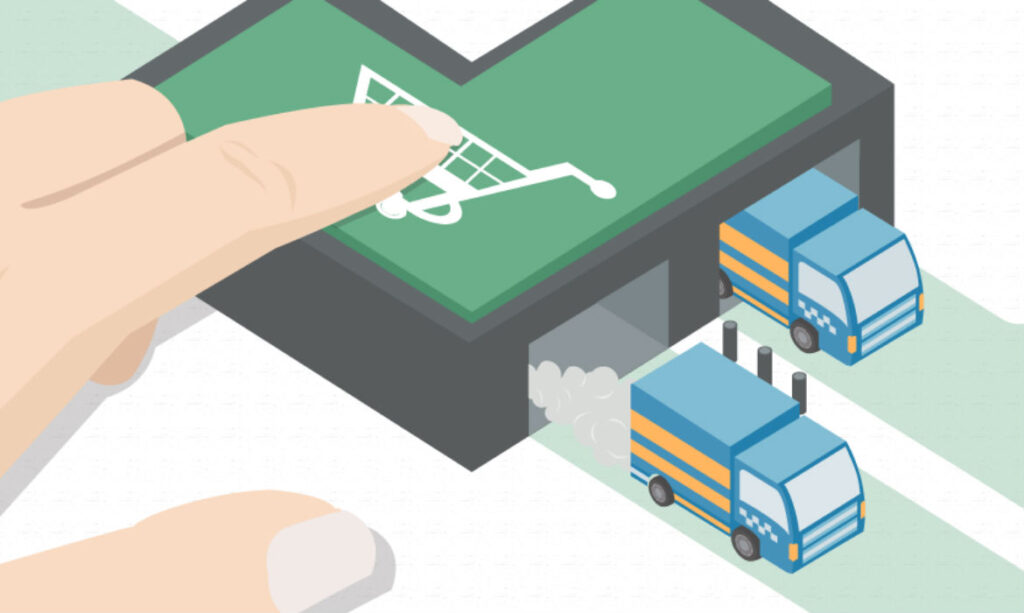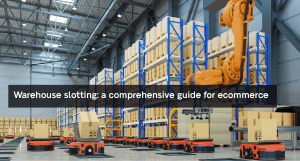When it comes to managing an e-commerce, the growth process goes far beyond the website. It is a very vast area in which various aspects have to be managed in the best possible way: the optimization of delivery times, inventory management, order management, the implementation of customer care, warehouse management and much more. other. Managing the logistics of an e-commerce doesn’t just mean getting products from point A to point B as quickly as possible. It is about optimizing all the processes involved within the supply chain so that customers receive their orders as quickly and cost-effectively as possible. In the last article we found out how to sell online without warehouse, and here we will introduce you to the world of e-commerce logistics and explain why optimizing logistics is essential for any company that wants to remain competitive in today’s digital age. Carry on reading to find out what it takes to build a successful ecommerce logistics system, including the benefits of third-party solutions and tips for boosting performance at each stage of the supply chain process.
What is ecommerce logistics?
Logistics is the process of moving goods from one place to another. In today’s digital trading environment, the term has evolved to include not only the movement of goods, but also their management throughout the journey. Simply put, e-commerce logistics is the management of goods in the supply chain, with a focus on digital systems, IT infrastructure and automation.
Logistics services for ecommerce can be divided into a series of main phases:
Reception of goods – the goods are received by the manufacturer or supplier and stored in a warehouse.
Inspection of goods – the goods undergo an inspection to determine whether they meet the required quality standards.
Repackaging of Merchandise – Merchandise is repackaged according to retailer or end user requirements.
Merchandise Inventory Management – inventory management software is used to track goods in real time, manage inventory, and forecast future demand.
Shipping of goods – goods are packed and prepared for shipment to the end user or reseller.
Goods inventory storage – goods are held in a warehouse or facility until they are sold to the end user.
The advantages of logistics optimized for e-commerce
An optimal logistics solution can have a significant impact on your bottom line. Among the many benefits of e-commerce logistics, the most important are the increase in sales, the reduction of inventory levels and the improvement of the customer experience.
Here are some other benefits:
Improving customer experience and satisfaction. Customer experience is one of the key elements to measure the performance of any ecommerce store. By outsourcing your logistics operations to a third-party provider, you can improve the customer experience in all its aspects. In fact, a third-party vendor can offer faster shipping times and provide more accurate delivery dates.
Inventory Optimization. Ecommerce logistics can help you optimize your inventory levels. This means that you will have the right amount of inventory to meet demand, but you will avoid overstocking. This can help you reduce costs and increase profits.
Increased Sales. With a streamlined process, logistics operations can help you increase sales by shortening the delivery time of an order and thus encouraging customers to buy from you again.
Warehouse automation in e-commerce logistics
The ecommerce industry has seen a rapid shift towards outsourced logistics and warehouse automation in recent years. With the projected increase in demand for automated solutions, the global warehouse automation market is projected to grow from USD 12.1 billion in 2018 to USD 30.4 billion by 2023. Warehouse automation is a highly specialized area of e-commerce logistics. To meet the growing demand, leading warehouse automation software vendors are shifting their focus to developing e-commerce software solutions.
Shipping solutions for ecommerce
Whether you have contracts with couriers to ship to England or ship to Italy, you must pay close attention to the delivery aspect. This is not only because shipping rates and, more in general, ecommerce logistics costs are an essential factor for your profit, but also because customers give great importance to speed and delivery times. The increased focus on ecommerce logistics has led to an increase in the number of real-time shipping rate comparison tools. However, these tools are not a complete solution – they merely provide an indication of how much different carriers will charge to ship a particular item. There are no details on the routes that the carriers will take and there is no information on the reliability of the carrier. If you want to create a seamless shipping experience for your customers, you need to take control of your shipping operations. This can be a challenge if you don’t have the right tools. Fortunately, there are several ecommerce shipping software solutions available.
Conclusions
It should be clear by now that logistics are an important part of any online selling business. For those who sell online, logistics services can be an important solution to grow their business. The logistics industry is expanding and changing rapidly, and new trends are emerging all the time. Technologies like artificial intelligence, robotics, and blockchain are being applied to logistics and are sure to have a significant impact on the industry in the years to come. There is no doubt that logistics is a complex sector. However, it’s also exciting. If you want to remain competitive, you need to focus on innovation and investment. This will allow you to improve your logistics operations and offer customers a better experience.




